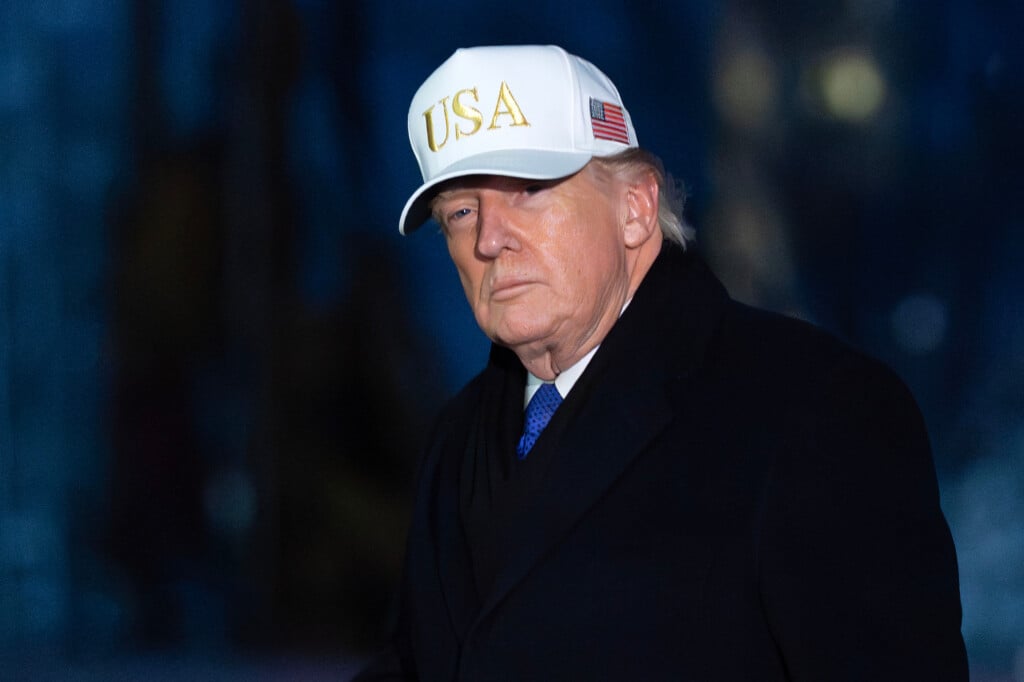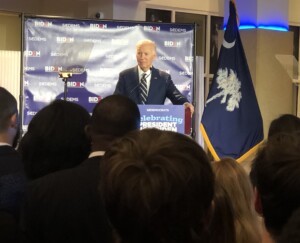Iowa caucus-goers preliminary entrance poll results project Trump winner
(ABC News) — A highly conservative Iowa caucus electorate had long locked in their pick before Monday night’s voting and feel that even if former President Donald Trump were convicted of a crime, he would still be fit for office, according to preliminary entrance poll results.
By a split of 63-32%, respondents to the entrance poll say they’d consider Trump fit for office despite a hypothetical conviction, with roughly 71% of the group saying he’s fit also voting for Trump, who is charged in four criminal cases and denies wrongdoing.
And 49% say they’re part of the “MAGA movement” that Trump started. The former president won 76% of that group, according to the entrance polls.
There were other indications that Monday’s voters were aligned with Trump: Sixty-six percent say they don’t think President Joe Biden legitimately won in 2020, which is false. Among that group, 68% supported Trump.
All of the Republican candidates’ late slogging through the Iowa snow may not have mattered much as 84% of caucus goers in these preliminary results say they either made up their minds either earlier this month — 14% — or before that, 69%
In terms of turnout among groups, 88% say they are conservative, matching the high in Iowa caucus GOP entrance polls, including 51% “very” conservative. White voters account for 97% of caucus-goers; evangelical white Christians, 51%.
Demonstrating the prevalence of conservatives and evangelicals, 58% of GOP caucus-goers say they’d favor a federal law banning all or most abortions.
Trump did 31% better with conservative voters than with moderates in Iowa, 53% vs. 22%. That’s a turnaround from 2016, when he did 11 percentage points better with moderates, 34% vs. 23%,
And he won even more “very” conservative voters, 61%, which was 40 points better than his 2016 showing in that group.
Trump did less well among political independents, 37%, than among Republicans, 53% this year. There was no such gap in 2016.
Of four issues tested as most important, two dominated: the economy, 37%; and immigration, 36%.
Foreign policy and abortion were far behind, each cited by 11%.
Trump easily won voters who picked both top issues, peaking with 60% support among those focused on immigration. While there were far fewer of them, abortion voters favored Florida Gov. Ron DeSantis, followed by former U.N. Ambassador Nikki Haley over Trump; and foreign policy voters were closely divided between Haley, 40%, and Trump, 36%.
Trump did far better among less-educated voters, winning 65% of those without a college degree vs. 35% among four-year college graduates.
While there were somewhat fewer of them in number than in past years, Trump won 53% of evangelical white Christians, which was 32 points better than his result among white evangelicals in 2016.
Top-cited candidate attributes were someone who “shares my values” and “fights for people like me.”
Trump won 41% in this group, compared with a mere 5% among voters prioritizing values in 2016. As noted, he won a vast 81% among those looking for a candidate who “fights for people like me.”
Haley, for her part, won 62% of caucus-goers looking for the candidate who “has the right temperament.”
The Iowa Republican caucuses were essentially uncontested in 2020, as Trump sought nomination for reelection. In the 2016 caucuses, Texas Sen. Ted Cruz edged out Trump and Florida Sen. Marco Rubio.
Cruz did especially well with very conservative caucus-goers, with 44% support; with those looking for a candidate who “shares my values, 38%; and with white evangelicals, 33%.
Trump did best in 2016 with those focused on immigration, with 44% support. He did 11 percentage points better with moderates than with conservatives, 34% vs. 23 %; and lagged among white evangelicals, with 21%.


